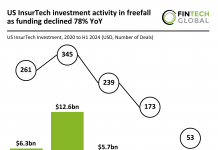In a world that is becoming ever-more globalised, the need and use of data is becoming central to establishing yourself as bigger and better than the rest.
In a recent post, WealthTech firm Wealth Dynamix discussed the role of data going forward and how wealth managers can benefit from the digital information they use and share.
The company remarked, “This slight tangent into digital data markets serves to highlight just how important data is becoming in the digital age. A data-first mindset will help wealth managers and marketers prioritise what data is important and valuable, in turn raising the bar for KYC and the client experience – an evolution that’s key to meeting the demands of younger clients used to high-tech, highly personalised high-touch services.”
While arriving at a fully-fledged data strategy is a benefit for companies, Wealth Dynamix noted it is not to be a one-time fix. A solid data strategy requires investment, optimisation, continual review and rigour. Client behaviours can often change due to external factors – as shown by the pandemic – and a strong data strategy can help firms build a feedback loop based on client data, identify emerging trends and act nimbly in response.
As with all investments, the firm noted there is a cost benefit analysis to be done as part of your data strategy, the cost of gathering, verifying and storing data, following by the cost of maintenance and return on investment.
Wealth Dynamix added that when faced with a growing data repository, firms should revert basic principles. These include seeking to understand the nature and value of the data you have relative to your companies’ regulatory burden and business strategy and categorise accordingly. The business added, “By establishing simple rules, you can quickly and effectively deduce what is crucial to your processes, current and future business aspirations, and what is surplus to requirements.
The company continued, “Data is the new global currency, however, akin to currency, it should be valuable and therefore worth accumulating. Data has a fluid value which can be based on its initial accuracy, half-life, context or relevance, in addition to the adjacent information or data units. To expand the currency analogy, data is traded every day, often when we aren’t even aware, for example, when we input personal details to play a game on Facebook or obtain discounts on goods or services.”
Data – Wealth Dynamix remarked – when properly aggregated and organised, has a value that is invariably greater than the sum of its parts. Users of the data should ask such things as what is its value and how quickly does it degrade, what is the risk and likelihood of that risk and how often do you need to read such data and what can it be used for.
The firm concluded, “Having a robust data strategy to address the client and transactional data buried in siloed repositories is a means to gain deeper insight into clients and service them more intuitively on a thoughtful and informed basis.”
The full post can be viewed here.











